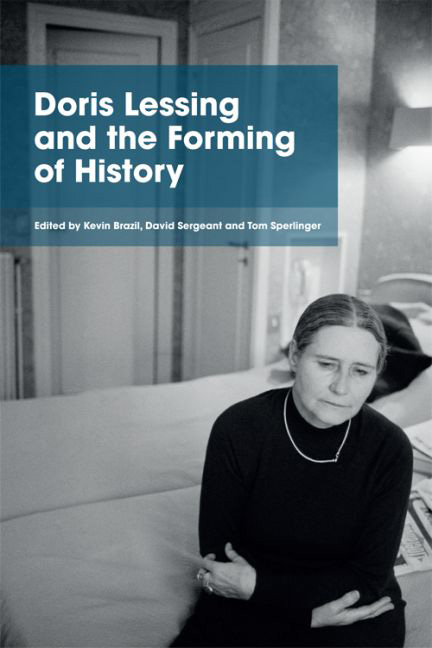Book contents
- Frontmatter
- Contents
- Acknowledgements
- Timeline
- Introduction
- 1 Early Lessing, Commitment, the World
- 2 ‘I'm an adolescent. And that's how I'm going to stay’: Lessing and Youth Culture 1956–1962
- 3 Sequence, Series and Character in Children of Violence
- 4 The Politics of Form: The Golden Notebook and Women's Radical Literary Tradition
- 5 Readers of Fiction and Readers in Fiction: Readership and The Golden Notebook
- 6 From The Grass is Singing to The Golden Notebook: Film, Literature and Psychoanalysis
- 7 ‘funny thing laughter, what's it for?’: Humour and Form in Lessing's Fiction,A
- 8 Lessing and the Scale of Environmental Crisis
- 9 Lessing and Time Travel
- 10 Lessing's Interruptions
- 11 Lessing's Witness Literature
- 12 A Catastrophic Universe: Lessing, Posthumanism and Deep History
- Select Bibliography
- Notes on Contributors
- Index
Introduction
Published online by Cambridge University Press: 26 May 2017
- Frontmatter
- Contents
- Acknowledgements
- Timeline
- Introduction
- 1 Early Lessing, Commitment, the World
- 2 ‘I'm an adolescent. And that's how I'm going to stay’: Lessing and Youth Culture 1956–1962
- 3 Sequence, Series and Character in Children of Violence
- 4 The Politics of Form: The Golden Notebook and Women's Radical Literary Tradition
- 5 Readers of Fiction and Readers in Fiction: Readership and The Golden Notebook
- 6 From The Grass is Singing to The Golden Notebook: Film, Literature and Psychoanalysis
- 7 ‘funny thing laughter, what's it for?’: Humour and Form in Lessing's Fiction,A
- 8 Lessing and the Scale of Environmental Crisis
- 9 Lessing and Time Travel
- 10 Lessing's Interruptions
- 11 Lessing's Witness Literature
- 12 A Catastrophic Universe: Lessing, Posthumanism and Deep History
- Select Bibliography
- Notes on Contributors
- Index
Summary
‘It's a question of form’ (1993: 418). So declares frustrated writer Anna Wulf, in what remains Lessing's most celebrated novel, The Golden Notebook. As this volume shows, the attempt to find forms which might record, model and engage historical change and all that it entails is one that persists throughout the six decades spanned by Lessing's writing. The chapters that follow attend to the full weight of Anna's statement: when Lessing's writing turns towards history it is not simply a question of finding the literary form that might best represent it; rather it involves questioning the very relationship between form and history, as they are brought together afresh in each new work. These questions might be common to literary criticism, but the chronological breadth of Lessing's career, and its sheer variety and productivity, makes them both particularly pressing and particularly enlightening in her work. As she moves from colonial Rhodesia to post-war Britain, and from war-torn Afghanistan to our posthuman future, her work employs the full panoply of techniques, modes, genres and effects that we refer to as forms: short stories, realism, serial fiction, documentary, drama, jokes, Sufi tales, reportage – and more.
But to what, exactly, does Lessing's writing turn, when it turns towards history? This is another question to which there is neither a single nor a simple answer. Two contradictory understandings of history can be seen to run throughout Lessing's work, and it is the irresolvable tension between them that makes the question of history, as much as the question of form, such a persistent and unifying theme in her oeuvre.
On the one hand, there is the notion of history as a teleological and determining process, one which guides the actions of the living, and whose logic can be grasped by those perceptive enough to see it. The most significant source for this belief was, of course, Marxism – or rather, a version of Marxism seized upon for offering the only vision of anticolonial resistance and anti-racist humanism to a young critic of colonial Rhodesia. But just as Lessing later argued that Marxism's utopianism, and its attempt at a ‘world-mind, a world ethic’ (1993: 14), was but one secular manifestation of an enduring pattern, so too this understanding of history as a meaningful process in itself, whose shape it was the task of the visionary writer to perceive, appears in multiple guises in Lessing's work.
- Type
- Chapter
- Information
- Doris Lessing and the Forming of History , pp. 1 - 9Publisher: Edinburgh University PressPrint publication year: 2016



